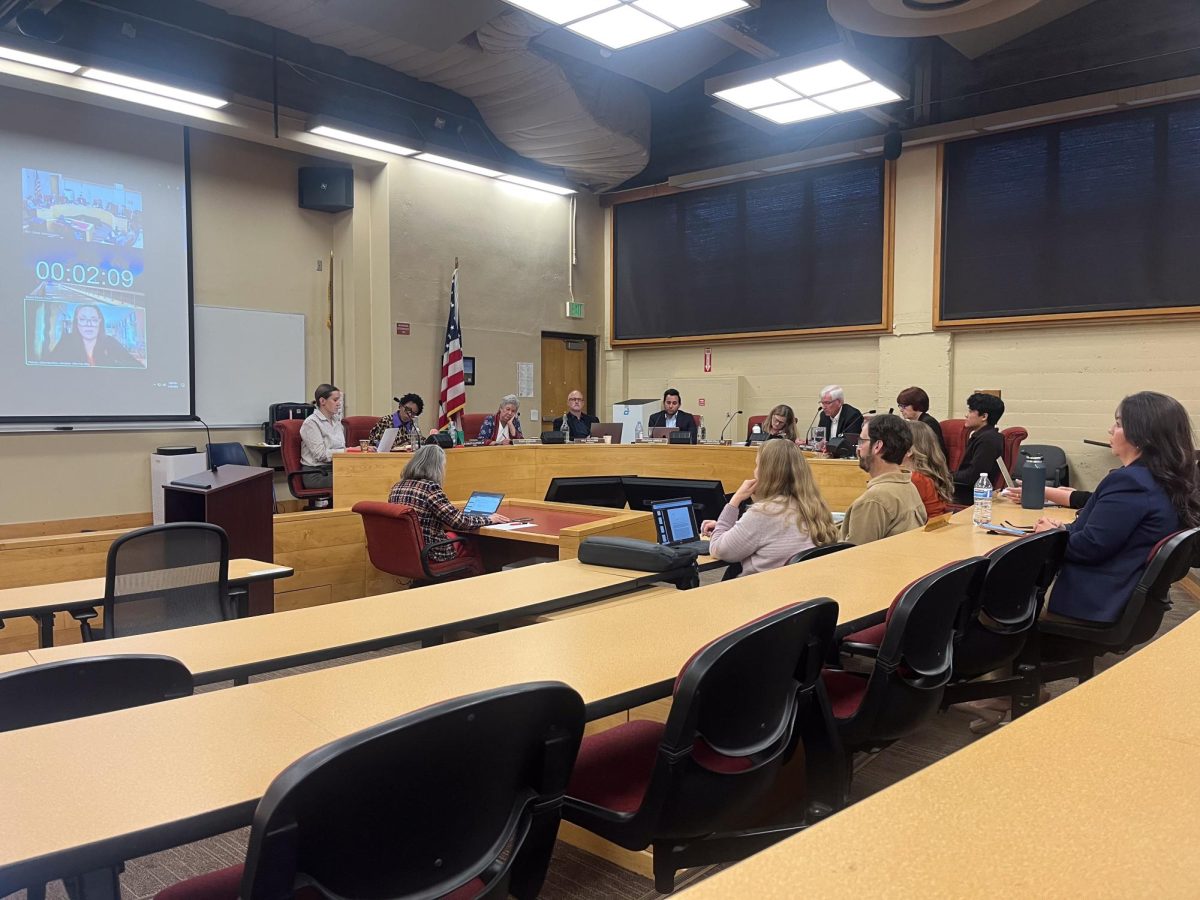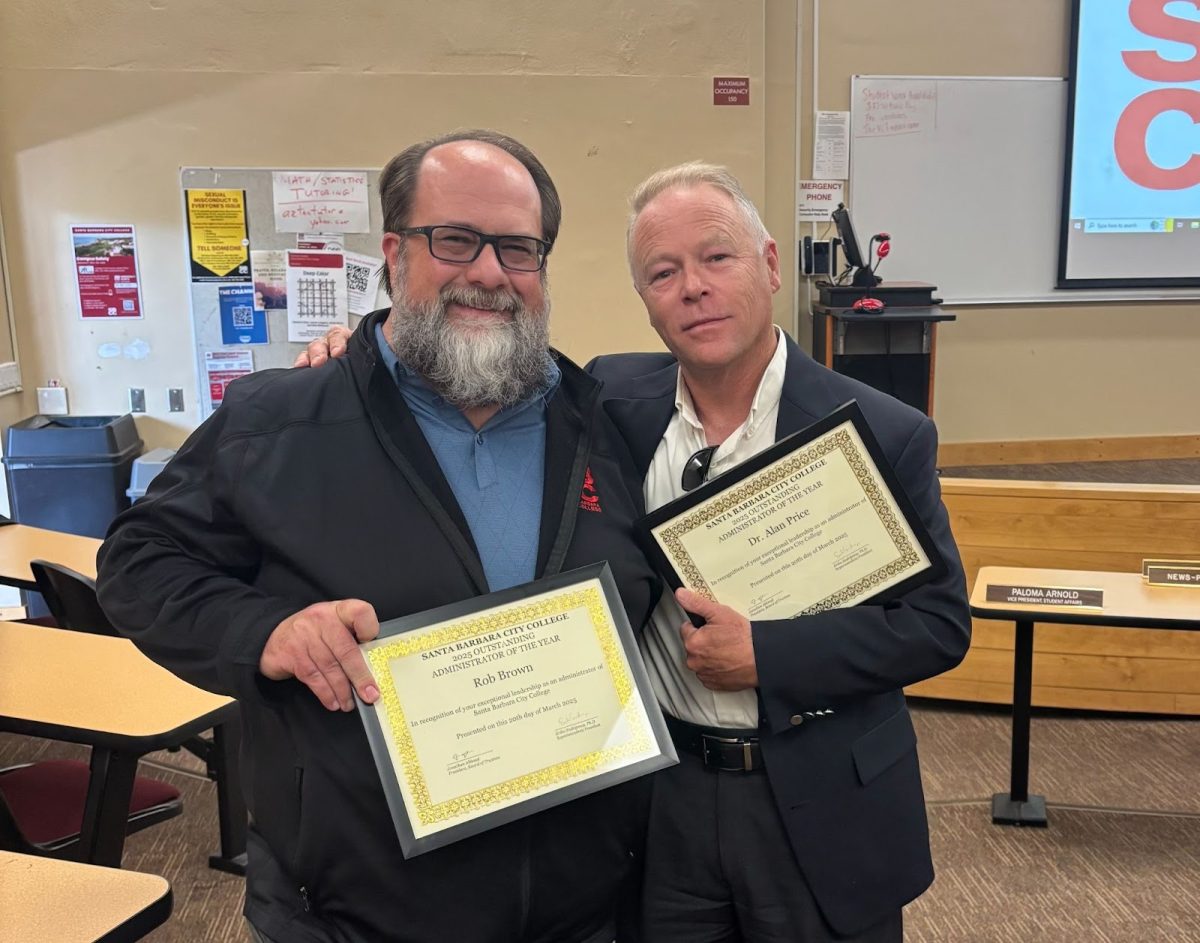“Why is a Vagina a Pre-Existing Condition?” is part of a faculty lecture series hosted by the Academic Senate. The second in a series of three, the panel was held at 5:30 p.m. Oct. 18, in the Business-Communications Forum. The three speakers are teachers at City College and specialists in their fields.
The lecture started with Professor Heather Rose, who holds a doctorate in biological sciences. She introduced the basic anatomy of women and explained why women require female-specific health care needs.
Rose began by talking about mammograms and stated that annual breast checks and mammograms are vital for breast cancer to not spread to the lymph nodes of the armpits. From the breasts, Rose moved her portion of the talk down to internal organs, specifically the cervix and pap smears.
She explained that pap smears are checks for pre-cancerous cells. Cervical cancer in stage one has a survival rate greater than 90% and goes down to 15% by stage four.
Rose’s point was that early detection is key. If you catch these illnesses early, cure rates are high. In order to have early detection you need check ups and preventive care. One needs insurance, money or planned parenthood to receive check ups.
Second to speak was History Professor Danielle Swiontek. She began by telling the audience that vaginas and politics are a part of American history. Swiontek narrated the Sheppard-Towner act of 1921, a maternity and infancy protection act.
Leading up to this act was the professionalization of medicine in the nineteenth century. The government pushed people out who they dubbed as “not real doctors,” mainly midwives according to Swiontek.
Following this, every state banned abortion and contraception was labeled “obscene.” Most women could not afford “real” doctors. By 1900 there were 100 deaths per 1,000 births and in 1920, 80% of women were without prenatal care.
The Sheppard-Towner Act involved communities by bringing midwife-hosted conferences on motherhood, babies and providing baby checkups. Swiontek said that all of this lead to infant mortality declining to 67 deaths per 1,000 births in 1929.
“The bill was good. So what did they do?” Swiontek pondered.
“They killed it.”
Physicians were not happy about this blow to their livelihoods and professionalism and called it “socialized” medicine.
To tie this into today’s current event, Swiontek mentioned a recent quote from Kentucky Gov. Matt Bevin. “Truth to be told, as a 50-something-year-old man, I don’t need maternity health care coverage. I don’t.”
Swiontek responding to Bevin’s and said, “well I’m sure you were never born Matt Bevin.”
She then discussed this attack on women’s health care being more about the progress of women. According to Swiontek, “A fear of feminism is leading to a breakdown of women’s health care.”
Global Studies Professor Andrea Haupt was the last speaker of the lecture. She took a comparative look at health care systems.
The overarching problem, according to this section of the night, is that the U.S. has a profit driven insurance system. Haupt stated that medical bills are the #1 reason why Americans file for bankruptcy.
The next topic to be discussed by faculty lecturers is “What Makes An American?”
That panel will be at 5:30 p.m. Nov. 14, in the Business-Communication Forum.
Clarification Oct. 24, 2017:
This story contains a grammatical update to a previous version.








